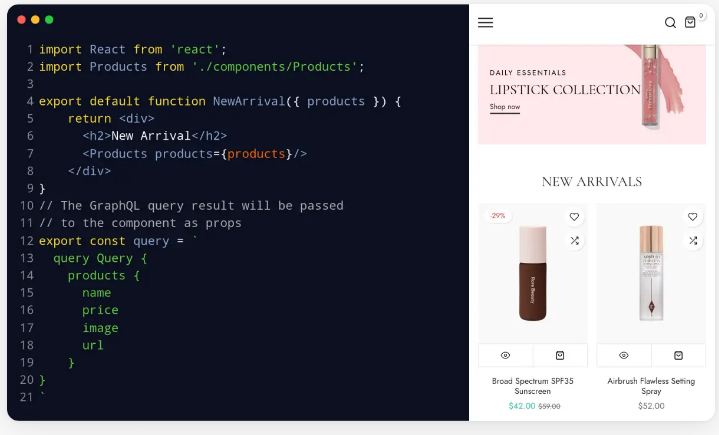WooCommerce vs Shopify: The Flexible, Cost-Effective E-Commerce Choice
WooCommerce: A Powerful E-Commerce Solution for WordPress Websites
Table of Content
If you're planning to launch an online store, you've likely come across a sea of e-commerce solutions. Some are all-in-one platforms, while others are designed to integrate with existing content management systems.
WooCommerce falls into the latter category—and does it remarkably well. Built to integrate seamlessly with WordPress, WooCommerce has quickly become the go-to e-commerce plugin for millions of entrepreneurs worldwide.
But what makes WooCommerce so good? And how does it compare to rivals like Shopify?
Let’s break it down.
What is WooCommerce?
WooCommerce is an open-source e-commerce plugin for WordPress, allowing you to transform any WordPress website into a fully functional online store.
Developed by Automattic (the company behind WordPress.com), WooCommerce powers over 20% of the top 1 million e-commerce sites on the internet, making it one of the most widely used platforms.
Unlike standalone e-commerce services, WooCommerce seamlessly integrates into your existing WordPress installation. It gives you the flexibility to customize your store’s appearance, functionality, and overall user experience, without being locked into proprietary software.

Benefits of Using WooCommerce
1. Fully Integrated with WordPress
If you're already running a WordPress site, adding WooCommerce is a no-brainer. Installation takes just a few clicks, and you can manage your store within the familiar WordPress dashboard. No learning curve required.
2. Extensive Customization Options
WooCommerce supports thousands of themes and extensions, making it highly customizable.
Whether you want a minimalist design or something more feature-rich, you’ll find a theme that suits your needs. Many WordPress themes also offer built-in WooCommerce compatibility.
3. Free and Open-Source
One of WooCommerce’s biggest strengths is that it's free to use. The core plugin provides essential e-commerce features at no cost, and because it’s open-source, developers can tweak and extend it as needed. This makes WooCommerce an affordable solution for small businesses and startups.

4. Scalability
WooCommerce can grow with your business. Whether you're selling a handful of products or managing thousands, the platform scales to accommodate your needs. You can start small and add features or upgrade hosting as your business expands.
5. Rich Ecosystem of Plugins and Extensions
WordPress has an extensive ecosystem of over 60,000 plugins, many of which integrate perfectly with WooCommerce. Need payment gateways, SEO tools, analytics, or marketing automation?
There’s a plugin for that. Popular extensions like Yoast SEO, Mailchimp, and WPML work seamlessly with WooCommerce.

6. Large and Supportive Community
Being part of the WordPress family means WooCommerce benefits from a global community of developers, designers, and store owners. If you encounter a problem, you’re never alone. There are countless forums, tutorials, and resources available to help you troubleshoot and optimize your store.
WooCommerce vs Shopify: The Showdown
When choosing an e-commerce platform, WooCommerce and Shopify are two of the most popular options. Each has its strengths, but which is right for you?
| Feature | WooCommerce | Shopify |
|---|---|---|
| Pricing | Free core plugin (additional costs for themes & plugins) | Subscription-based starting at $29/month |
| Customization | Highly customizable via WordPress themes & plugins | Limited to Shopify’s templates and app store |
| Ownership | You own your store and data (self-hosted) | Shopify hosts your store (you rely on their servers) |
| Ease of Use | Slight learning curve for beginners | Beginner-friendly, all-in-one solution |
| SEO | Advanced SEO control with WordPress plugins | Built-in SEO tools (limited compared to WordPress) |
| Payment Gateways | 100+ options (PayPal, Stripe, etc.) | Native Shopify Payments + other integrations |
| Community Support | Large WordPress community | Dedicated Shopify support + user forums |

Why Choose WooCommerce Over Shopify?
- Cost Efficiency: WooCommerce is free, while Shopify requires a monthly subscription. WooCommerce's costs depend on your choice of hosting, themes, and plugins, making it more flexible.
- Customization Freedom: With WooCommerce, you can modify every aspect of your store. Shopify, while user-friendly, limits design freedom unless you pay for higher-tier plans or custom development.
- Ownership and Control: WooCommerce gives you complete ownership of your store and data. You’re not reliant on a third party for hosting, which is a significant advantage if you value independence.
- Extensive Theme Library: WooCommerce works with thousands of free and premium WordPress themes. Shopify has fewer free themes and charges more for premium options.
- SEO Power: WooCommerce inherits WordPress's SEO prowess. With plugins like Yoast SEO or Rank Math, you have unparalleled control over on-page optimization.

Final Thoughts: WooCommerce’s Strength Lies in Flexibility
If you’re looking for a customizable, cost-effective e-commerce solution that integrates seamlessly with WordPress, WooCommerce is hard to beat. Its open-source nature, extensive plugin ecosystem, and supportive community make it ideal for businesses of all sizes.
While Shopify offers simplicity and convenience, WooCommerce provides freedom, control, and scalability. For those who value flexibility and want a store that grows with their business, WooCommerce remains an outstanding choice.
🔗 Learn more: WooCommerce Official Site



















